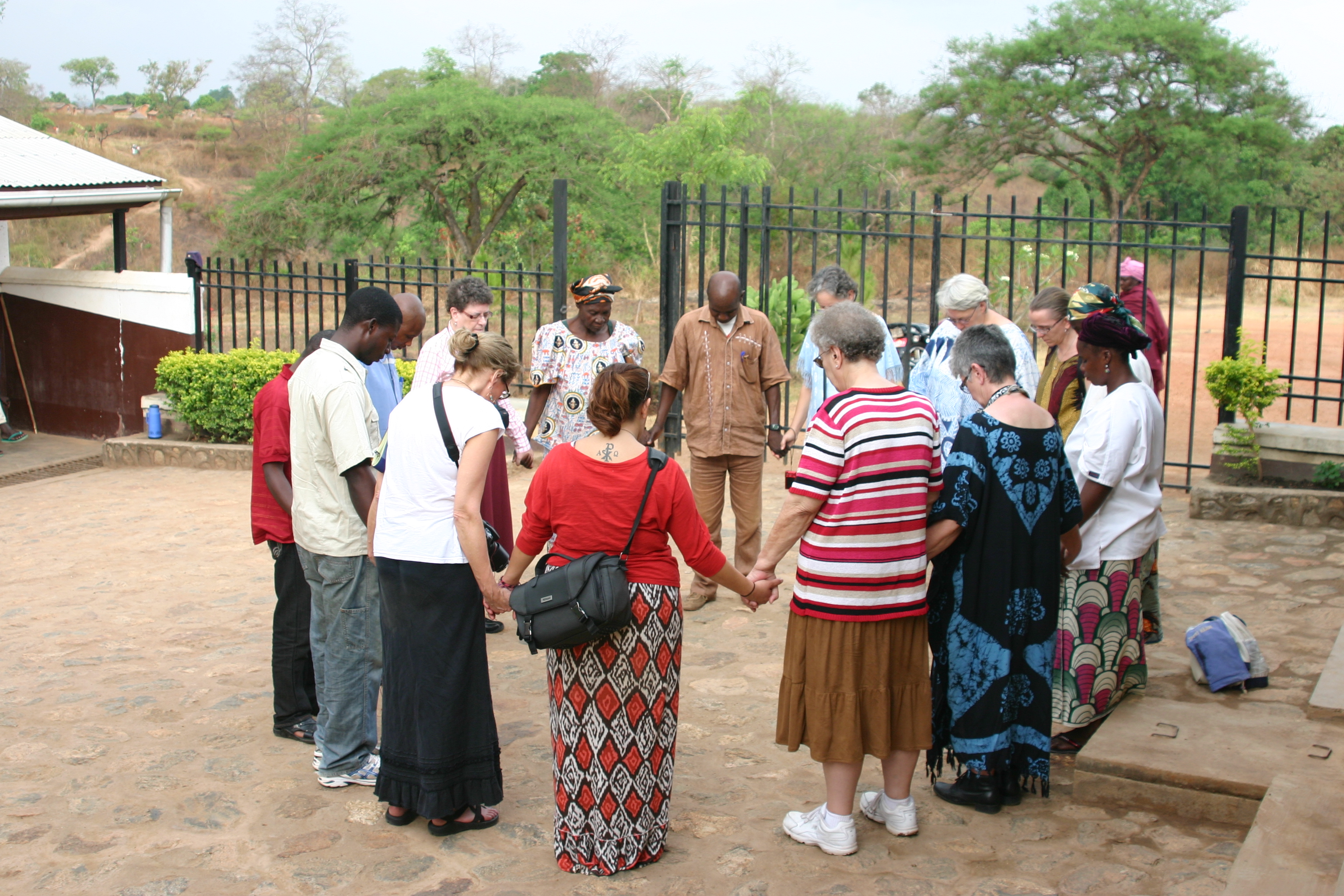
Jun 23, 2025
New Creation: Learning Reconciliation & Listening Beyond Borders
So if anyone is in Christ, there is a new creation: everything old has passed away; look, new things have come into being! All this is from God, who reconciled us to himself through Christ and has given us the ministry of reconciliation." (2 Corinthians 5:17-18)
The Apostle Paul's radical vision of transformation and reconciliation has been an ongoing guidepost for me; it was the text at the center of my ordination into ministry. In Christ, the old patterns of division, the ancient hatreds, the tired scripts of us-versus-them—all of it passes away. Something entirely new emerges. And we, as followers of Jesus, are entrusted with the sacred work of reconciliation.
Here in the United States, we find ourselves in a moment when some who claim the name of Christ are building walls instead of bridges, scapegoating immigrants and nonwhite communities, instead of treating them as neighbors. In particular, White Christian Nationalism has co-opted the language of faith to justify exclusion, fear, and the preservation of power. It's heartbreaking. It distorts the Gospel into a weapon. It is not reconciliation. It is not the way of Jesus. And it must pass away.
Learning from Our Global Family
But here's what gives me hope: the Gospel does not belong to America; it’s not the property of any one country. It's a global faith. And when we listen—truly listen—to our brothers and sisters around the world, we hear a different story. We hear the gospel as it sounds to those who know what it means to be marginalized, persecuted, and pushed to society's edges.
Take our siblings in India, where Christians make up just 2.3% of the population and face increasing persecution under Hindu Nationalism. There, Dalit theologians—those from communities too often still considered "untouchable"—have developed a profound understanding of Jesus as the one who stands with the oppressed. They see in Christ not a savior who blesses the powerful, but one who “has brought down the powerful from their thrones and lifted up the lowly” (Luke 1:52), who brings “good news to the poor” and “sets free those who are oppressed” (Luke 4:18).
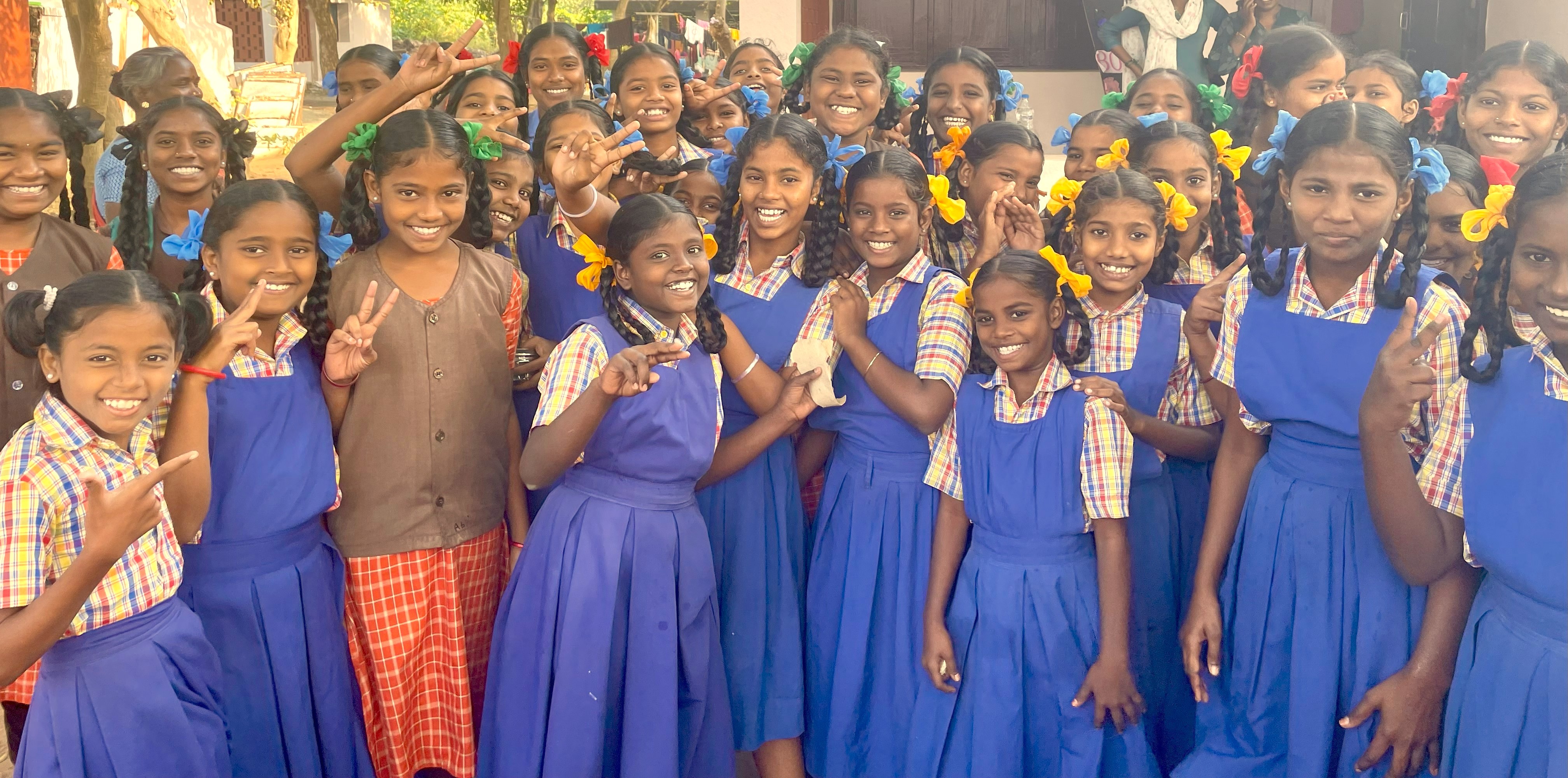
Dalit children living and learning at Melpattambakkam Boarding Home in Cuddalore, Tamil Nadu, India smile together in February 2025. LPGM supports four boarding homes run by the Arcot Lutheran Church (ALC) - a church body by Dalit people, for Dalit people.
Dalit Christians in India often think of Jesus himself as a Dalit—an outcast who touched the untouchable, ate with tax collectors and “sinners” (understood as unclean and/or profane), and was ultimately crucified outside the city gates. This is not a Christ who sanctifies nationalism or political power. This is a Christ who tears down the barriers that divide us.
The Wisdom of Truth and Reconciliation
Or consider South Africa, where after decades of apartheid—a system that grotesquely misused Christian language to justify racial oppression—the church played a crucial role in healing. The Truth and Reconciliation Commission, led by Archbishop Desmond Tutu, showed us what the "ministry of reconciliation" looks like in practice.
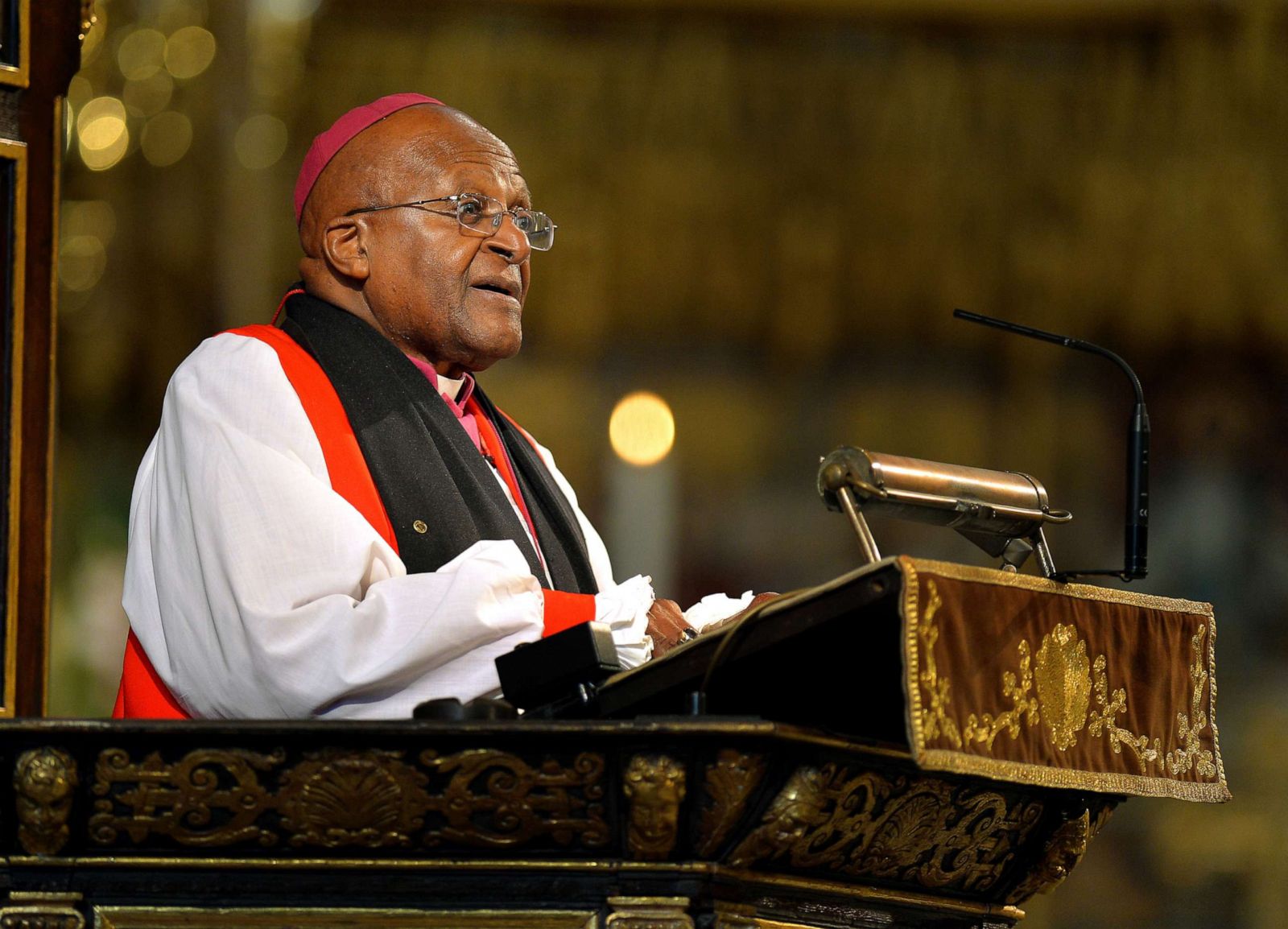
Archbishop Desmond Tutu addresses the congregation during a National Service of Thanksgiving to celebrate the life of Nelson Mandela at Westminster Abbey on March 3, 2014, in London. John Stillwell/WPA Pool via Getty Images
It wasn't cheap grace or easy forgiveness. It was the hard work of truth-telling, of acknowledging harm, of creating space for lament and healing. Tutu understood that reconciliation requires us to face our past honestly, to hear the stories of those we've hurt, and to commit to a different future.
“There is no future without forgiveness," Tutu famously said, "but there is also no forgiveness without truth.”
So what do we do?
So how do we, as faithful people in America, counter the rise of hate? How do we resist the scapegoating of immigrants and people of color? The answer lies in expanding our vision beyond our borders and listening to the global church.
First, we can listen to the voices of Christians who are themselves immigrants and people of color. In our own communities, we must create space for these voices to lead, to teach, to challenge our assumptions.
“All too often we look for God in the wrong places,” writes Dr. Elizabeth Vasko. “We think we will find God’s Word within places of safety, security, and economic prosperity. Yet, time and time again, the gospels tell us that God’s Word does not dwell there. The Word of God dwells among the humiliated, oppressed, despised, and forsaken…. The Word of God dwells among those crucified in history.” (Beyond Apathy: A Theology for Bystanders, (Fortress Press: 2015), 215)
Second, we can learn from global theologies. Whether it's Dalit theology from India, Gbaye theology from Central Africa, or Black theology from South Africa, these traditions offer profound insights into what it means to follow Jesus as one who sides with the oppressed. They reveal the ways that Christianity has been distorted to serve power and show us how to reclaim its liberating heart.
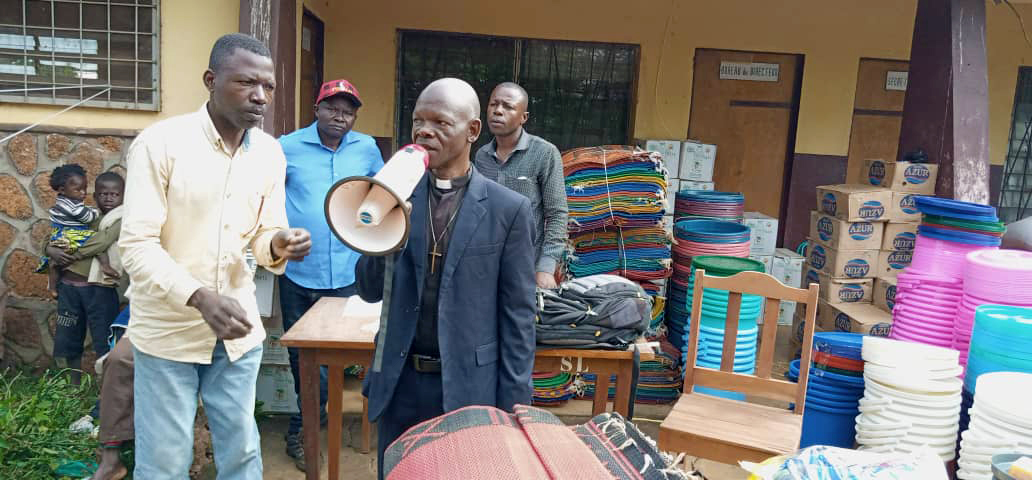
The Rev. Joseph NGOE, president of the Evangelical Lutheran Church in C.A.R. speaks through a megaphone to people who were internally displaced in Baboua in 2021. Credit: Floribert Ngare.
Third, we can practice theological humility. American Christianity has often assumed it has the corner on biblical truth, but our global siblings remind us that the gospel looks different when read from the margins. When we listen to Christians who face persecution, poverty, or exclusion, we hear dimensions of Jesus' message that privilege can obscure.
A New Creation Is Possible
The old patterns of fear and division don't have to define us. A new creation can emerge—communities where the stranger is welcomed, where the marginalized are centered, where love casts out fear.
I think of the East African concept of harambee (“all pull together” in Swahili)—the practice of communities coming together to solve problems collectively, to care for one another across tribal and ethnic lines. These are glimpses of the new creation Paul envisioned.
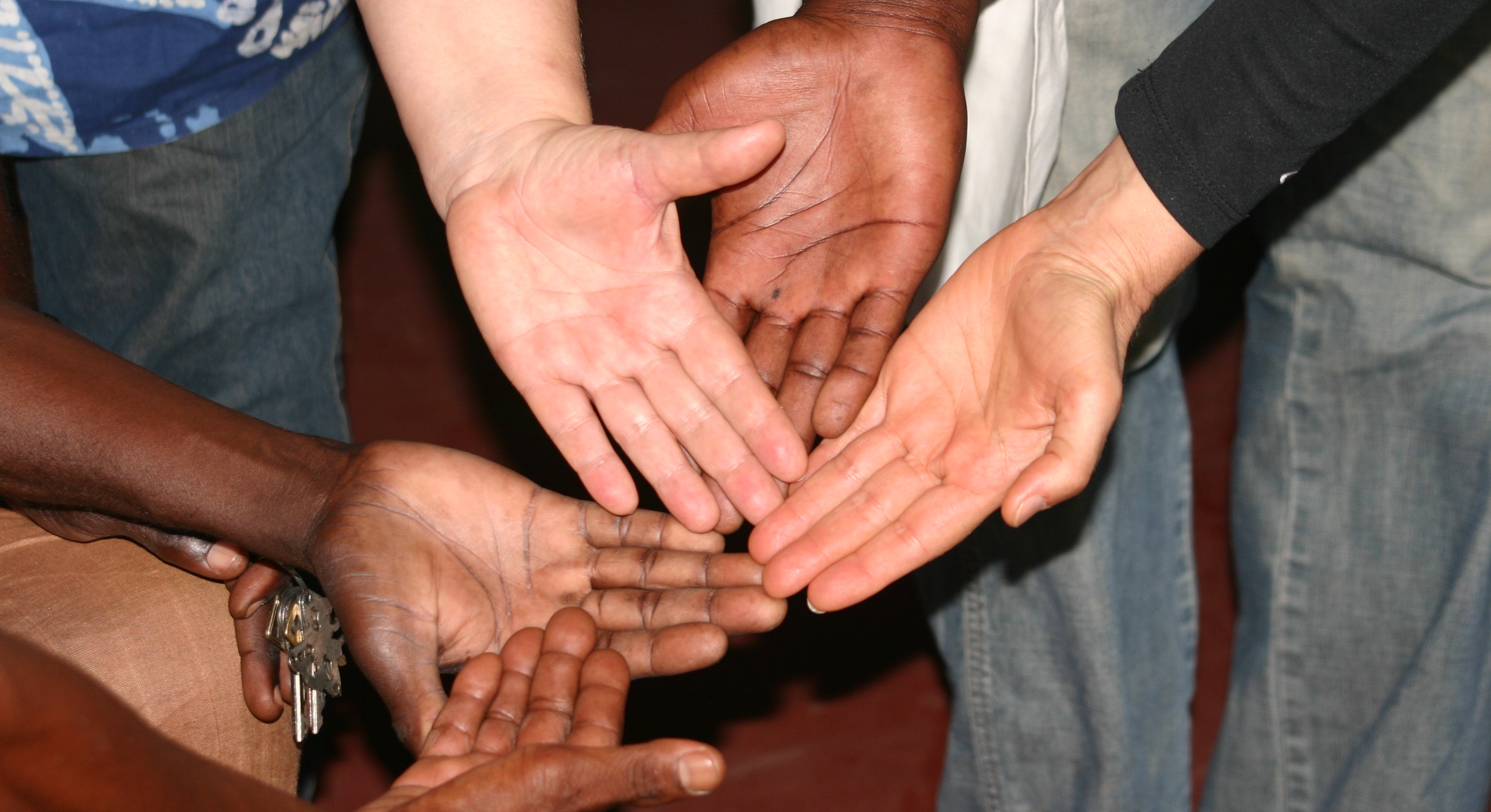
The palms of five health care professionals at the Emmanuel Health Center in Gallo, Central African Republic in 2020. Credit: Naomi Staruch
The ministry of reconciliation isn't easy work. It requires us to forgo old ways of being and embrace something genuinely new. But this is what it means to be followers of Jesus—to participate in God's ongoing work of healing and transformation.
Let us have the courage to let the old pass away. Let us be humble enough to learn from our siblings in the faith—especially those the world overlooks. And let us never forget that in Christ, we are being made new.
The voices from the margins are calling us back to the heart of the gospel. Are we ready to listen?

The Rev. Dan Ruth is executive director of Lutheran Partners in Global Ministry. Dan is passionate about helping people see where God is at work in the world. With experience in international development and nonprofit communications, Dan focuses on helping create the most meaningful outcomes or impact. He joined LPGM in 2017.






